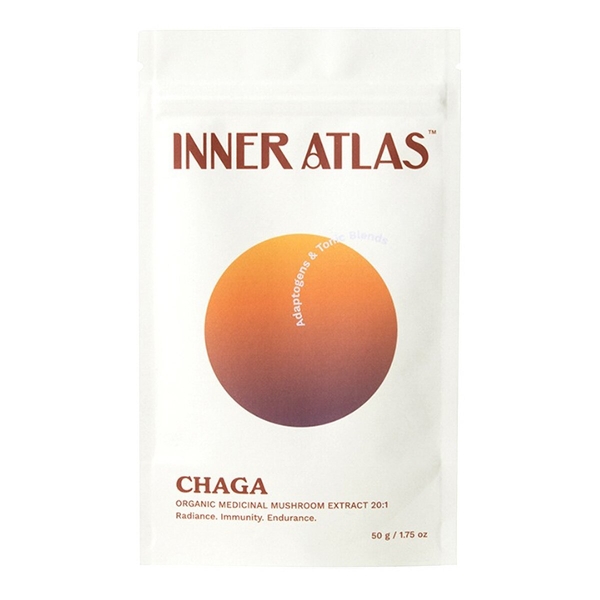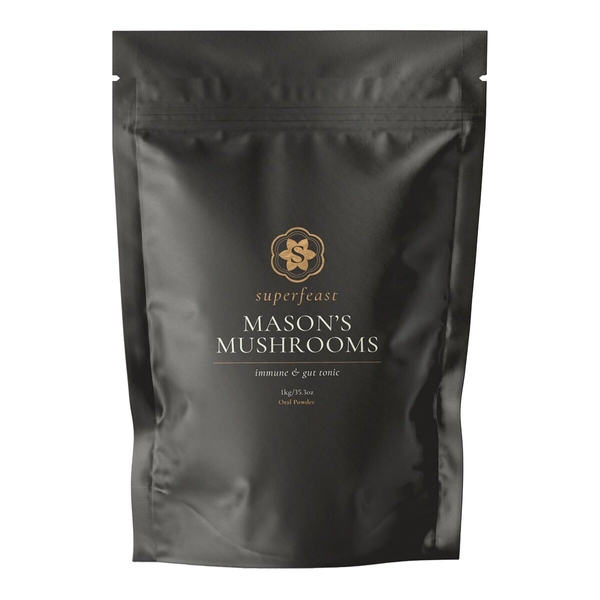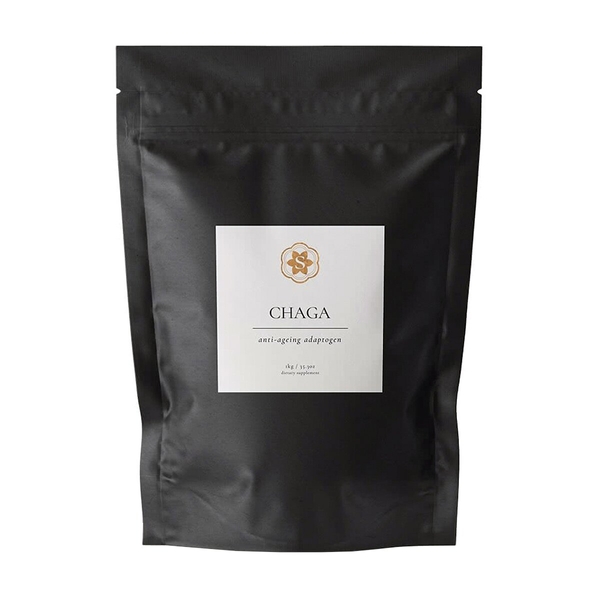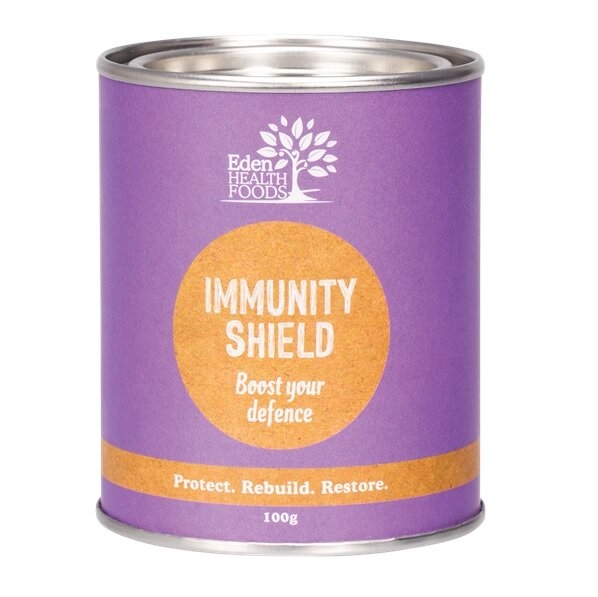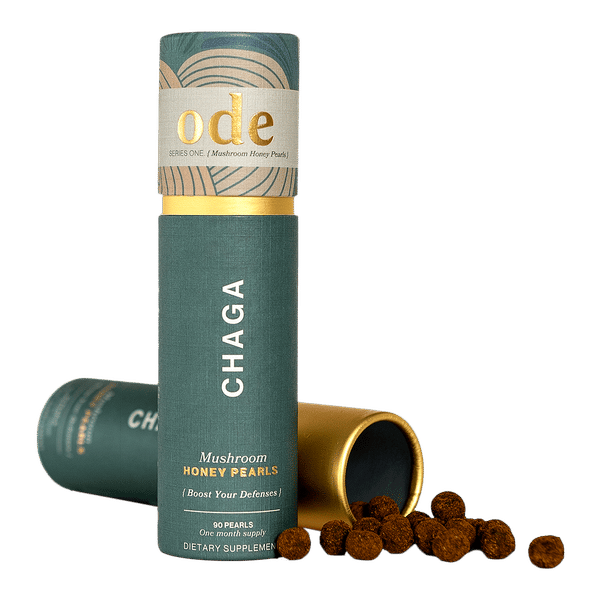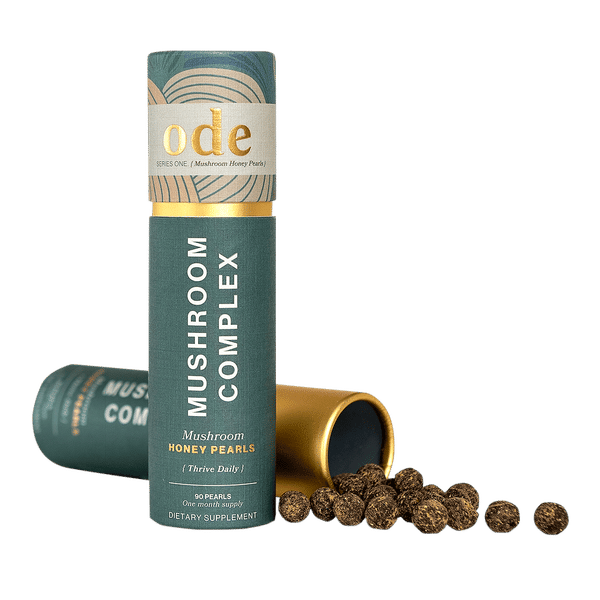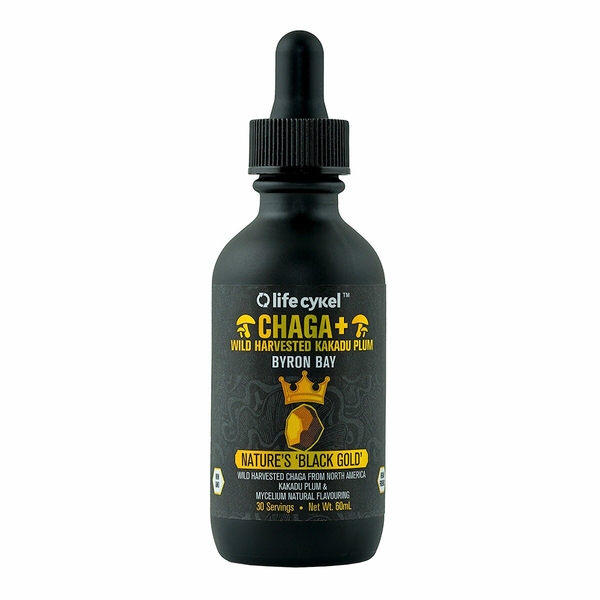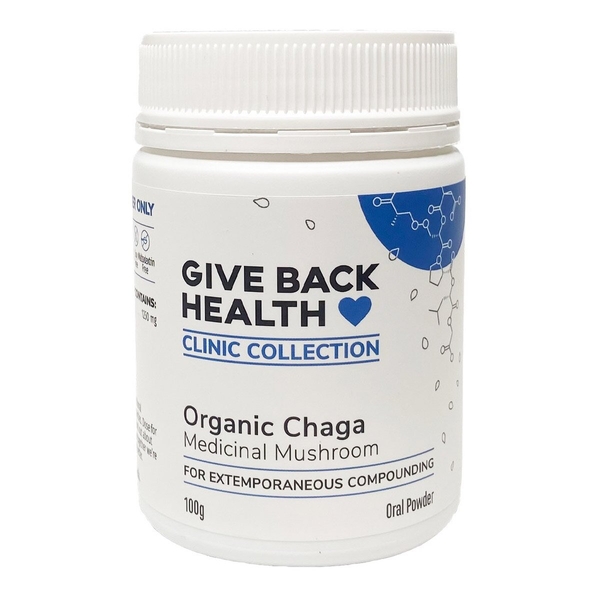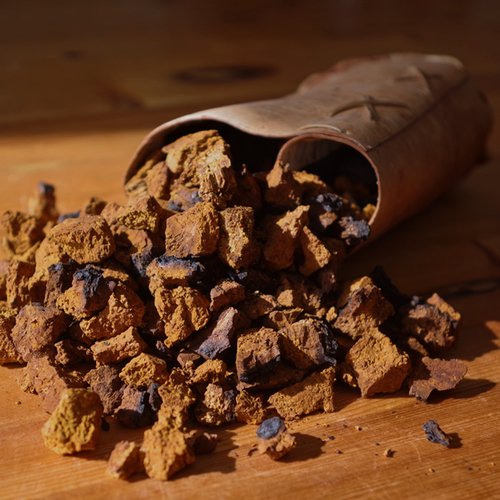
Chaga
Scientific names: Inonotus obliquus
Family: Hymenochaetaceae
Alternative names: Birch Mushroom, Chaga Conk, Chaga Mushroom, Champignon de l’Immortalité, Cinder Conk, Clinker Polypore, Diamant de la Forêt, Don de Dieu, Ganoderma Sibirica, Siberian Chaga, Tchaga, Tricholoma Obliquus
Actions: Anticancer, Antidiabetic, Anti-inflammatory, Antioxidant, Cardiovascular, Immune, Lipid-modulating, Radioprotective
Background
Chaga is a fungus that grows on tree trunks, especially birch trees. It produces a woody growth, called a conk, which absorbs nutrients from the wood.
Chaga might stimulate the immune system. It contains some chemicals that have antioxidant effects, and might lower blood sugar and cholesterol levels.
People use chaga for conditions such as heart disease, diabetes, cancer, and others, but there is no good scientific evidence to support these uses. There is also no good evidence to support using chaga for COVID-19.
Chaga might stimulate the immune system. It contains some chemicals that have antioxidant effects, and might lower blood sugar and cholesterol levels.
People use chaga for conditions such as heart disease, diabetes, cancer, and others, but there is no good scientific evidence to support these uses. There is also no good evidence to support using chaga for COVID-19.
Safety Safety definitions
When taken by mouth: There isn't enough reliable information to know if chaga is safe or what the side effects might be. It contains a chemical called oxalate which can damage the kidneys when taken in high doses for a long time.
"Auto-immune diseases" such as multiple sclerosis (MS), lupus (systemic lupus erythematosus (SLE), rheumatoid arthritis (RA), or other conditions: Chaga might cause the immune system to become more active. This could increase the symptoms of auto-immune diseases. If you have one of these conditions, it's best to avoid using chaga.
Bleeding disorders: Chaga might increase the risk of bleeding. Don't use chaga if you have a bleeding disorder.
Surgery: Chaga might affect blood sugar control or increase the risk of bleeding during and after surgery. Stop using chaga at least 2 weeks before a scheduled surgery.
Special Precautions & Warnings:
Pregnancy and breast-feeding: There isn't enough reliable information to know if chaga is safe to use when pregnant or breast-feeding. Stay on the safe side and avoid use."Auto-immune diseases" such as multiple sclerosis (MS), lupus (systemic lupus erythematosus (SLE), rheumatoid arthritis (RA), or other conditions: Chaga might cause the immune system to become more active. This could increase the symptoms of auto-immune diseases. If you have one of these conditions, it's best to avoid using chaga.
Bleeding disorders: Chaga might increase the risk of bleeding. Don't use chaga if you have a bleeding disorder.
Surgery: Chaga might affect blood sugar control or increase the risk of bleeding during and after surgery. Stop using chaga at least 2 weeks before a scheduled surgery.
Effectiveness
Effective Effectiveness definitions
There is interest in using chaga for a number of purposes, but there isn't enough reliable information to say whether it might be helpful.
Dosing & administration
There isn't enough reliable information to know what an appropriate dose of chaga might be. Keep in mind that natural products are not always necessarily safe and dosages can be important. Be sure to follow relevant directions on product labels and consult a healthcare professional before using.
Interactions with pharmaceuticals
Medications for diabetes (Antidiabetes drugs)
Interaction Rating=Moderate Be cautious with this combination.
Chaga might lower blood sugar levels. Taking chaga along with diabetes medications might cause blood sugar to drop too low. Monitor your blood sugar closely.
Medications that decrease the immune system (Immunosuppressants)
Interaction Rating=Moderate Be cautious with this combination.
Chaga can increase the activity of the immune system. Some medications, such as those used after a transplant, decrease the activity of the immune system. Taking chaga along with these medications might decrease the effects of these medications.
Medications that slow blood clotting (Anticoagulant / Antiplatelet drugs)
Interaction Rating=Moderate Be cautious with this combination.
Chaga might slow blood clotting. Taking chaga along with medications that also slow blood clotting might increase the risk of bruising and bleeding.
Interactions with herbs & supplements
Herbs and supplements that might lower blood sugar: Chaga might lower blood sugar. Taking it with other supplements with similar effects might lower blood sugar too much. Examples of supplements with this effect include aloe, bitter melon, cassia cinnamon, chromium, and prickly pear cactus.
Herbs and supplements that might slow blood clotting: Chaga might slow blood clotting and increase the risk of bleeding. Taking it with other supplements with similar effects might increase the risk of bleeding in some people. Examples of supplements with this effect include garlic, ginger, ginkgo, nattokinase, and Panax ginseng.
Herbs and supplements that might slow blood clotting: Chaga might slow blood clotting and increase the risk of bleeding. Taking it with other supplements with similar effects might increase the risk of bleeding in some people. Examples of supplements with this effect include garlic, ginger, ginkgo, nattokinase, and Panax ginseng.
Interactions with foods
There are no known interactions with foods.
Products
View all productsRRP: $35.00$33.25Save: 5%
Create account
RRP: $373.00$335.70Save: 10%
Create account
RRP: $469.00$422.09Save: 10%
Create account
Per 3 g:
- Inonotus obliquus (Chaga) (mushroom)
- Echinacea angustifolia
- Astragalus membranaceus
- Sambucus nigra (fruit)
- Lycium barbarum
- Rosa canina
- Luo Han Guo (fruit) ext. (Monk fruit)
- Echinacea purpurea
- Sambucus nigra
- Glycyrrhiza glabra (root)
- Olea europaea (leaf)
- Calendula officinalis
- Origanum vulgare
- Uncaria tomentosa
- Mentha x piperita
- Thymus vulgaris
- Cola acuminata
- Foeniculum vulgare
- Inula helenium
- Asclepias tuberosa
- Achillea millefolium
- Armoracia rusticana
- Capsicum spp.
- Allium sativum
- Allium cepa
- Zingiber officinale
- Cordyceps sinensis (mushroom)
- Ganoderma lucidum (mushroom)
- Lentinula edodes (mushroom)
- Tremella fuciformis (mushroom)
- Trametes versicolor (mushroom)
- Salvia eremostachya
- Hericium erinaceus (mushroom)
- Ilex paraguariensis
RRP: $49.95$47.45Save: 5%
Create account
$53.95
Create account
RRP: $51.95$46.76Save: 10%
Create account
Discontinued by Give Back Health Clinic
Practitioner product
vital.ly has licensed monographs from TRC Healthcare.
This monograph was last reviewed on 24/03/2025 11:00:00 and last updated on 15/10/2015 01:37:15. Monographs are reviewed and/or updated multiple times per month and at least once per year.
Natural Medicines disclaims any responsibility related to medical consequences of using any medical product. Effort is made to ensure that the information contained in this monograph is accurate at the time it was published. Consumers and medical professionals who consult this monograph are cautioned that any medical or product related decision is the sole responsibility of the consumer and/or the health care professional. A legal License Agreement sets limitations on downloading, storing, or printing content from this Database. No reproduction of this monograph or any content from this Database is permitted without written permission from the publisher. It is unlawful to download, store, or distribute content from this site.

